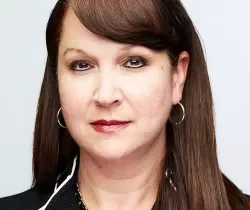Rachel Wimberly

Rachel Wimberly is Executive Vice President of Business Development at Tarsus Group, US. Follow her on Twitter @TSNN_Rachel.

As soon as I heard about ChatGPT (Chat Generative Pre-trained Transformer) – an AI chatbot program from a company called OpenAI that gives detailed answers to questions in a matter of seconds – my interest was instantly piqued.
I first heard about it when a professor was on the news talking about how students were using it to write assignments and how the professor thought it was easy to tell when the students did.
I also heard a recent marketing podcast on which it was debated if and when the chatbot program could take over basic copywriting duties.
The jury definitely still is out on the above, but I thought I would give ChatGPT a simple event planning challenge and see what happened.
I asked the program the following question that it answered in about 5 seconds.
How would you plan an event in a hotel with a group of dentists who need to see new products and earn their CEMs?
To plan an event in a hotel with a group of dentists who need to see new products and earn their CEMs, the following steps can be taken:
By following these steps, you can plan a successful event in a hotel for a group of dentists who need to see new products and earn their CEMs.
Pretty basic and broad – but not too bad!

So, what are some other possible uses for ChatGPT for the events industry?
How about planning a menu? You can ask the program to plan for groups of people and put in any themes, number of courses, type of overall cuisine and any menu restrictions - seconds later – a menu will appear.
Ask it questions about any destinations – like what convention centers would fit an event with 100,000 people? It named a few around the world, including McCormick Place in Chicago.
I asked it how events could be more sustainable and it listed several ideas, such as local sourced food, compostable plates and utensils, choose a sustainable venue, measure carbon emissions and partner with local organizations to promote social responsibility initiatives.
Basically – you can ask ChatGPT just about anything, and while many of the event planning ideas are pretty general for now, as the program gets more sophisticated, it could possibly add some new ideas into your events in the future.

Add new comment